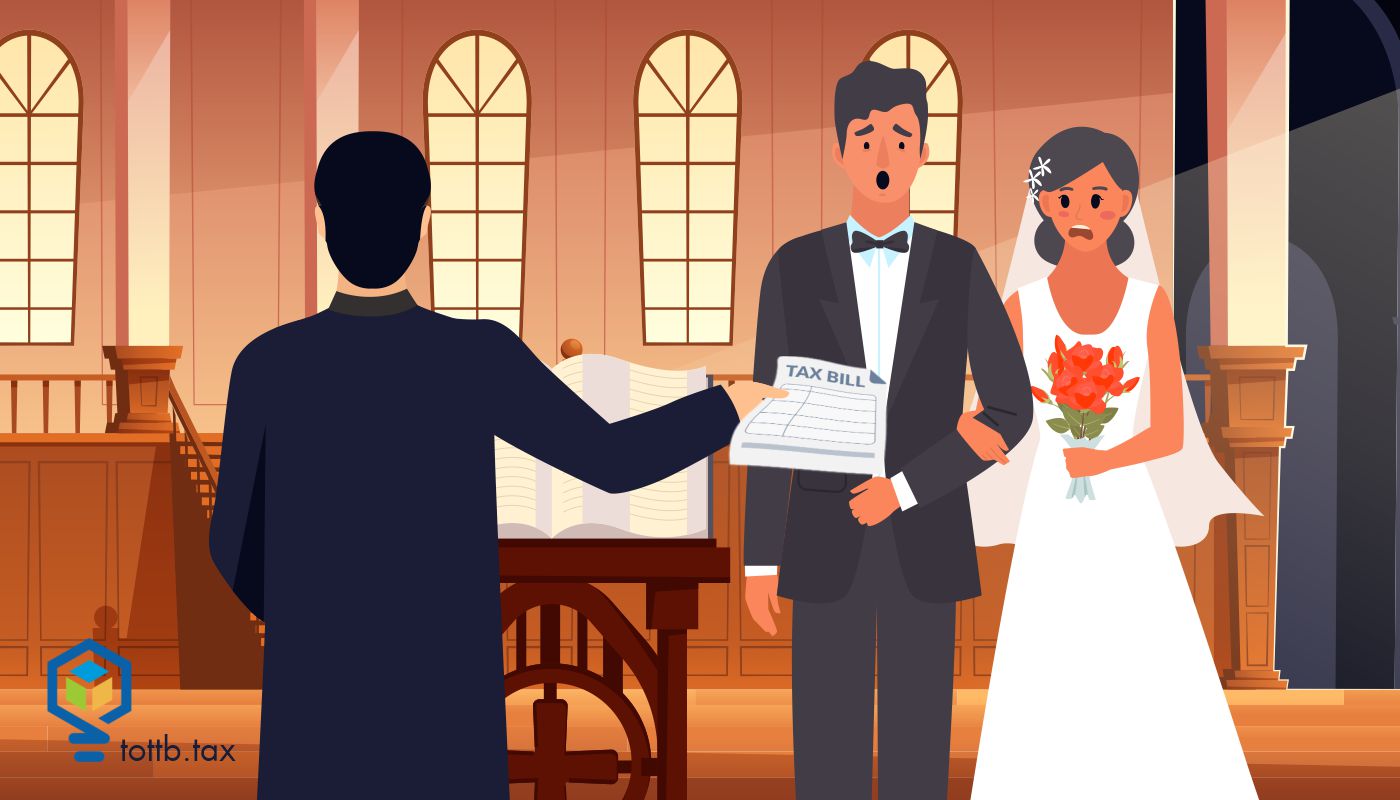CURRENT EDITION

The Benefits Your Military Veteran Clients Aren’t Using (And Why That’s a Planning Problem)
Why aren’t more veterans using the benefits they’ve earned? Part of the problem is awareness, and part of it is discomfort (for both veterans and advisors). After all, veteran benefits are rooted in service-connected health and trauma, placing them in a category that often feels more personal than financial. That alone can deter veterans from discussing their disability compensation and keep advisors from broaching the subject altogether. The result is financial plans that look optimized on paper but are built on incomplete assumptions and missed opportunities – opportunities that have been more than earned.
READ MORE10 Reasons Your Clients Should Get a Tax Divorce
As a married individual, you can select a tax filing status as either married filing jointly or married filing separately, and in some cases neither of these statuses achieve what is possible for two single taxpayers each filing their own tax return. In many cases it can seem you are getting penalized for being married in the U.S. You may get frustrated that you seem to keep getting hit with “wealth taxes or penalties.” Of course, you may not refer to it that way. But when you see things like the Alternative Minimum Tax, The Net Investment Income Tax, the Additional Medicare Tax, and a whole variety of other taxes that are higher for married filers than they are for two single people…you may be tempted to think about a divorce. And “live in sin”? No matter your personal beliefs there are at least 10 tax attributes that cost married filers more than two single people. In some instances, children are in the mix, as they relate to specific credits. Some of these situations only apply to wealthy couples. Some only apply to those earning $50,000 or less or seniors. These attributes, commonly known as the so-called “marriage penalty” refer to situations where it may pay to file as two single individuals rather than as a married couple. However to qualify, you cannot legally be married as of December 31. To learn more about these penalties and find out how to work around them, continue reading.
Read MoreRetirement Tax Planning – Having a Rough Year? Turn Lemons into Lemonade by Using Business Losses to Offset Roth IRA Conversions
A ROTH conversion can be a very powerful tool for your retirement. While you don’t receive a tax break for deposits to your ROTH account, qualified withdrawals from the account are tax-free, even earnings. This is an excellent way to avoid tax increases. Let’s say your taxes rise due to increases in tax rates, or because you earn more, which catapults you to a higher tax bracket, ROTH IRA conversions can save you a ton of money in taxes over the long term. The disadvantage, of course, is that tax is due on the amount you convert based on the value at conversion. But many times, such as when you are in a temporarily low tax bracket, have large deductions during the year, or in a year with business losses, can provide optimal opportunities to convert with little to no tax expense. Looking for more strategic times to convert? Keep reading to learn more.
Read MoreTAX PLANNING – IT’S NOT JUST FOR THE WEALTHY – Part 2
In Part One of this series, we looked at strategies to reduce adjusted gross income (AGI). But the planning doesn’t stop there. We call deductions that reduce AGI “above the line” deductions. But wait, the tax saving opportunities don’t stop with AGI. Even with the higher standard deductions courtesy of the Tax Cuts and Jobs Act (TCJA), there are many opportunities for taxpayers of modest means to find “below the line” tax savings. Let’s explore the many ways you can reduce your taxable income and whether you maximize your tax benefits even more with tax credits. Keep in mind that a tax deduction reduces your taxable income A tax credit reduces your tax dollar for dollar and, in some cases, the credits are refundable, meaning you can get additional tax benefits even after reducing your taxable income to zero . Read on for some tax planning tips reducing taxable income and maximizing credits that may work for you.
Read MoreHow to Avoid the Top 4 Mistakes in Selling Tax Planning to Current Clients
After two years of “The Tax Season That Never Ends,” tax pros everywhere are looking for ways to leverage their services and improve profit margins in their firms. But many are missing out on their biggest opportunity to dramatically increase profits: selling tax planning to existing clients. As technology has advanced and firms have adopted more automation, tax pros can do much more work in less time. This is a problem when you are in the business of selling billable hours. Additionally, as the Tax Code has grown in complexity, we often find that taxpayers don’t fully understand the value of our expertise and knowledge – they simply see the same prepared form year after year. This makes it difficult to continue increasing prices beyond the market rate for tax prep. As a result, many tax preparers have embraced value pricing for tax planning services. The market demand for strategic planning has increased and as small business owners embrace do-it-yourself accounting software, it is easy to offer this missing expert advice needed to assist the business owner in reducing tax expense. Accountants have found success in breaking through pricing barriers and reducing the risk of scope creep in their experiments with value pricing. Yet most are fearful of bringing this offer to existing clients and start offering higher priced planning only to new customers. Many judge that existing clients will be upset the pros haven’t offered this work in the past, assuming taxpayers will be unhappy missing out on value they could have created long ago. Still others worry merely raising rates will mean losing customers. Despite discovering that new customers really like price certainty and value the strategic work, tax pros are still reluctant to upsell existing relationships, thereby, offering different processes to lists of “new” and “old.” Yet considering it costs five times more to gain a new client than to approach an existing client, many accountants are leaving profits on the table. According to research by Bain and Company, increasing your client retention rate increases profits by 25 percent to 95 percent. And statistics show that keeping and selling more services to a current client is less expensive compared to securing a new client. Still, fear blocks many from making this transition, creating more loyal, profitable, and happy clients. Here are the four biggest mistakes I see tax professionals make by not offering advisory services to clients.
Read MoreHome Sweet Domicile – There’s More to State Residence Than a Driver’s License
Voter registration, a drivers license, and day counting are what come to mind when people think about residence for state income tax purposes. There is no question that those basics are very important and ignoring them can kill your cause. Nonetheless, many other factors can enter into a determination, including church attendance and pets. That’s because you will generally be a resident of the state in which you have your “domicile.” And domicile as a concept borders on the mystical. It is your true home, it remains your domicile until you abandon it and establish a new one. Yet, establishing your domicile in a state with no (or low) income taxes can be lucrative. In some cases, this can represent millions of dollars all by avoiding state income tax. The natural progression of a business owner’s life can also include exiting said business at substantial profit. Your domicile at the time of the transaction can be pivotal in determining how much of that profit you’ll be left with in retirement. To learn more about how to do this, keep reading.
Read MoreTax Planning – It’s Not Just For the Wealthy – Part 1
It's hard to escape the news covering numerous methods high net-worth clients use to minimize their taxes. A ProPublica (June 8, 2021) headline trumpets, “The Secret IRS Files: Trove of Never-Before-Seen Records Reveal How the Wealthiest Avoid Income Tax.” CNBC (September 20, 2021) highlights, “The wealthy may avoid $163 billion in taxes every year. Here’s how they do it.” Even Teen Vogue dives into the topic. If you're a taxpayer of more modest means, you may think, Hey, what about me? I can’t afford the team of high-priced tax advisers or consider many of these tax reduction techniques. Are there ways I can minimize my taxes that are legal, easy to implement, and affordable? The answer is a resounding YES. And how do I qualify? Read on for some tax planning tips that will work for you. Part One (of this two-part series) covers strategies to reduce your adjusted gross income.
Read MoreYou Are Not Eligible for the Employee Retention Credit: Vague “Suspensions” Lead to Trouble
Far too many of these Employee Retention Credit (ERC) claims are nonsense. Now don’t get me wrong. I enjoy helping businesses claim the ERC. I have written in these pages about the unique ways a business may qualify and how to use startup eligibility even for existing employers. But let’s be honest: People are manipulating this program beyond belief. The refund dollars are too attractive and have created far too large an incentive for shops charging high commission fees (I have seen fees charged between 10 to 35 percent of the refund). In the coming years, numerous aggressive ERC shops may contact you if they haven’t already. How do you know whether a claim is legitimate or nonsense? Here, we will review the most prevalent bad arguments to help you avoid trouble.
Read MoreHow to Slash Your Property Taxes
Question: You talk a lot about reducing federal taxes, but what about other taxes? It seems like we get taxed on everything multiple times! Is this even legal? Answer: Isn’t it the truth! You may feel that your income, purchases, and belongings get taxed double, triple, and even more times. The saying goes, “nothing is certain except death and taxes.” And even when you die the same property and earnings may be taxed again. The Supreme Court even answered the question in 2015 about whether taxing the same income more than once is constitutional. In the case of Maryland v. Wynne, the 5-4 decision indicates that two states do not have the right to tax the same income. While many of the strategies discussed in Think Outside the Tax Box reduce federal taxes, most of them will reduce your state income taxes as well, depending on whether or not the state in which you pay taxes conforms to federal tax law. In addition, there are many state tax reduction strategies worth learning and implementing. However, did you know there are also tax reduction strategies for other types of taxes like property taxes? One of the oldest taxes and primary sources of revenue for states, counties, cities, schools, and fire departments comes from taxing the value of property owned within a jurisdiction. In some locations, this can include personal property as well as real estate. Like most good tax laws, property tax laws include loopholes you can use to pay less. To learn more, continue reading here.
Read MoreNOT A MEMBER YET?

SUBSCRIBE TO GET ALL OF OUR
GREAT ARTICLES AND RESOURCES!
CURRENT EDITION

The Benefits Your Military Veteran Clients Aren’t Using (And Why That’s a Planning Problem)
Why aren’t more veterans using the benefits they’ve earned? Part of the problem is awareness, and part of it is discomfort (for both veterans and advisors). After all, veteran benefits are rooted in service-connected health and trauma, placing them in a category that often feels more personal than financial. That alone can deter veterans from discussing their disability compensation and keep advisors from broaching the subject altogether. The result is financial plans that look optimized on paper but are built on incomplete assumptions and missed opportunities – opportunities that have been more than earned.

Start the Year Right: Your WISP Doesn’t Have to Be a Tax Season Nightmare
The mere mention of a WISP makes most tax professionals want to suddenly lose their internet connection. It sounds bureaucratic, technical, and deeply unfun. But here’s the good news: creating and maintaining a WISP does not have to feel like a compliance root canal. And ignoring it can turn into something far worse than an IRS audit. Let’s talk about why you need one, what it’s actually supposed to do, and how to get it done without wrecking your sanity in the middle of filing season.

Fleeing High Tax States And The Stickiness Of Domicile
Part of preparing to leave a high state tax is facing up to the fact that the tax collectors of high-tax states can be kind of clingy. There is more to changing your residence for tax purposes than simple steps like a new driver’s license and a change in voter registration.









